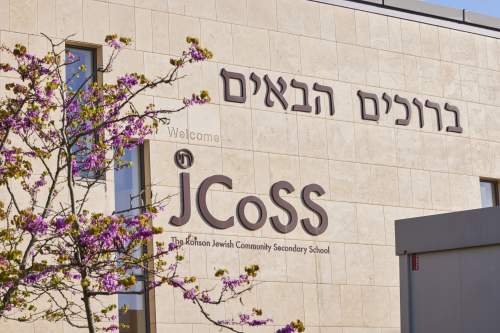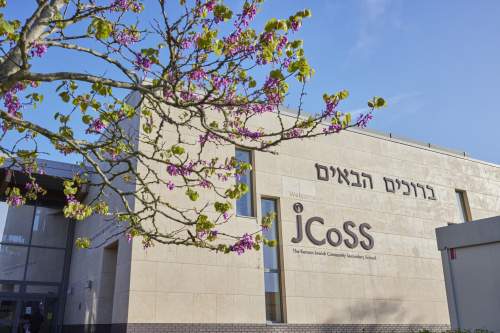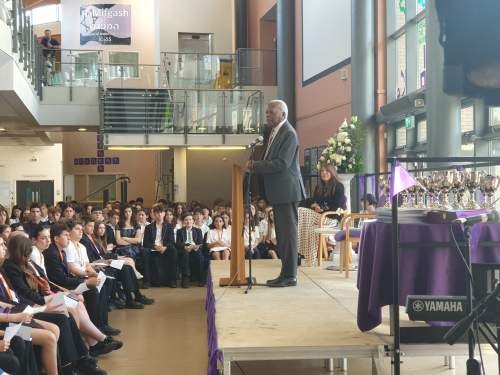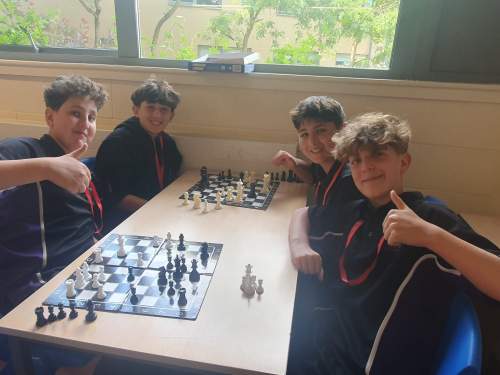Which is more urgent for you: the need to fit in, or the desire to stand out?
These two pressing and perhaps conflicting demands have been occupying our attention at JCoSS in the past week. They are surely a core part of the experience of every human being and something we all have to come to terms with as we mature, but they seem to me especially marked for those – like our students – who are growing up in a consumerist, liberal society.
Our culture sets a high value on individuality, choice and uniqueness, and on the virtues of tolerance and diversity, but our choices are often determined and constrained by market forces in ways we can’t quite identify. You can choose what you like – so long as enough others want the same to make it economically viable to produce. Meanwhile, social media makes it all the harder to escape knowing what is ‘trending’ with the result that it can be very hard even to make a truly authentic choice. Small wonder that, for all the comforts that surround us, we are on many measures less happy than our forebears 50 years ago, and less happy than economically poorer societies today.
A wide range of options can certainly be bewildering (as Year 9 may shortly feel as they consider subject choices for GCSE), while the deep-seated need to belong is as powerful as ever. This, I suspect, is a key part of the ‘zeitgeist’, the spirit of the age that has seen the founding of a school such as JCoSS, a community of shared values which affirms the sense of Jewish belonging, whilst also allowing scope for individuality. One consequence is that we sometimes have to live in the midst of debate and struggle, so it is no surprise that one of the leaves on the JCoSS Learning Tree (see the October 2013 newsletter) is ‘machloket’ – arguing for the sake of heaven. There are worse things to argue about.
Some similar themes are live in the very different context of Holocaust Memorial Day which we have marked in various ways this week. How does a society deal with difference? How does it allow the quirky to flourish and how does it treat those whose values or choices are ‘against the grain’? I have been encouraging students to reflect on these questions within the JCoSS community in assemblies this week. The grotesque answers to them that came out of Naziism are obvious; we have been keen to stress the significance of ‘HMD’ for also remembering more recent genocides. As you can read in later pages, students heard at first hand from a survivor of Nazi Germany who was rescued via the Kindertransport, and from a survivor of the Bosnian conflict. The questions students asked were insightful (‘Can you forgive…?’) and their reflections that were posted in the Heartspace as we gathered at the end of the day were as moving as they were diverse.
The story of the KIndertransport was also recalled by JCoSS students at New North London Synagogue on Sunday: the Zamar Singers, under Ms Humphreys’ direction, performed extracts from Carl Davis’ “Last Train to Tomorrow” with the composer himself at the piano. The piece tells the story of the KIndertransport from the point of view of the Kinder, and the words and music are haunting, moving but also accessible – as is typical of Carl Davis’ work. The collaboration has been very successful and both parties are keen for JCoSS to perform the whole work in the future.
To return to the angsts of 21st century teenagers – let us not forget the greater angsts of those of us who parent them. It may bring you reassurance that on the whole they turn out ok in the end. As witness, our first Year 13 cohort of students are holding a clutch of university offers at a wide and wonderful range of institutions, including our first one from Cambridge. We hope they will fit in, and stand out, in all the best possible ways.
Patrick Moriarty
Headteacher




